THE SOMA PROJECT

THE SOMA INITIATIVE – TAMALE 2025
The Problem
Our pilot project in Tamale gave us an intimate insight into the challenges facing Junior High School girls in Year 3. In this final year before transitioning into Senior High School, girls face a daunting landscape of challenges, most especially in the period just after exams and before starting SHS. We noted that most girls are navigating this time largely alone and poorly equipped to take on the pressures of becoming young women in their communities in the predominantly Muslim city of Tamale. Girls develop in a framework of tribal and gender norms that leave them facing gender inequality in a surveillance society that does not encourage independence.
Whilst working in schools, we hear from students some of the challenges they faced. Lack of peer support, lack of safe spaces to discuss intimate issues that affected girls, pressure from boys for sex and even pressure to have transactional sex to buy mobile data. We observed how little the girls knew about their personal rights, bodily autonomy or safe sex and how deferential their demeanour and how afraid they were to speak up or articulate their truth.

The Response
The SOMA program is our community-led response to these needs. We recognised that what vulnerable girls needed most was a safe sisterhood where they could have the intimate, personal conversations that are crucial during adolescence. The sessions are held in a single-sex group setting, working with one cohort throughout the program. The sessions are facilitated by our Programs Manager, Mariama Adam, with guest presentations each week from other women in the community who provide wisdom, learning, support and accurate information in a safe, supportive environment.
The Program
SOMA is a free empowerment program for JHS3 girls preparing for senior high school in Northern Ghana. We create safe, supportive spaces where girls can engage in honest, intimate conversations with their peers while learning about their rights, health, and emotional well-being—all guided by trusted female mentors who understand their journey.
Our sessions create a protected environment for the deep, personal conversations that girls crave, blending peer support with mentorship and covering essential life skills in a locally-rooted and culturally sensitive format.
Core Topics Covered in SOMA Sessions:
- Preparing for Senior High School – What to expect, how to navigate new environments, building resilience for the transition
- Intimate Peer Conversations – Safe spaces for honest discussions about growing up, relationships, and personal concerns with trusted female mentors
- Understanding Your Body & Health – Reproductive health education, menstrual hygiene, body respect and self-image
- Rights & Personal Safety – Children’s rights education, recognising and avoiding unsafe situations, building assertiveness
- Navigating Relationships – Understanding healthy relationships, setting boundaries, peer pressure, and family dynamics
- Digital Safety & Awareness – Safe online behaviour, avoiding exploitation, understanding the risks of transactional relationships for data/social media access
- Emotional Wellness – Mental health awareness, managing stress, building emotional resilience and self-worth
- Communication & Life Skills – Assertiveness training, public speaking confidence, leadership development
- Future Planning – Goal setting, visioning exercises, understanding pathways beyond senior high school
All topics are delivered through facilitated group discussions, creative activities, mentorship, and peer support circles in a culturally sensitive, locally-rooted format.
We are currently piloting the SOMA program with JHS3 girls from Darrul Haddis JHS in Gbolo Palasi, Tamale. Once the first cohort is complete, we will analyse the monitoring and evaluation data and make refinements to the program. We will then be seeking funding to roll out the program into other areas of Tamale and to enable us to run programs throughout the year.
The final step of the SOMA program is to train previous participants to come back and help facilitate new groups in the future. We believe that this small-group work facilitated by trusted local female facilitators with the close involvement of previous alumni is key to the long-term success of the program, ensuring the girls are better equipped, more confident and more vocal participants in shaping their future lives.
